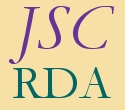
The Committee of Principals for the Anglo-American Cataloguing Rules (AACR) and Resource Description and Access (RDA)Response to Library of Congress' Working Group on the Future of Bibliographic ControlDecember 2007The CoP thanks the Library of Congress' Working Group on the Future of Bibliographic Control (WG) for this opportunity to comment on its draft report. The sections of the report of greatest concern to us are found in 3.2.1, recommendations regarding RDA and, related to that in 4.2.1, “Realization of FRBR”. Our biggest concern in the WG's report is the recommendation that work on RDA be suspended in order for further testing of the FRBR conceptual model to occur. CoP and its units, including the Joint Steering Committee (JSC), entered into the development of RDA after considerable thought and analysis. We feel strongly that suspension of work on RDA development is counter-productive to providing future benefits to both the American and international library community from this product, and thus we will be continuing with the development of RDA. The Library of Congress has long been a valued partner in AACR and RDA. Loss of such valued input at this stage would be regrettable and we request that LC continue its involvement in the development of RDA as planned. The CoP notes that RDA is testing the very application of FRBR that the WG is recommending. Collaboration with many international communities beyond the USA, committing considerable resources - human effort, intelligent assessment and evaluation not to mention financial support - have already been expended on the development of RDA. We fail to see the logic of LC suspending its participation in this work, only to create another group that would find itself undertaking similar activities (assuming financial resources could be found to support such work). This is not efficient use of resources. For example, the JSC has initiated discussions with ONIX, DCMI, and appropriate semantic Web technologies groups. An extremely productive meeting was held with representatives from the JSC and DCMI at the end of April/beginning of May 2007. Three recommendations for further work resulted from this meeting, yet identifying funding sources to move forward with them has not been forthcoming despite expressions of interest from several groups. This reiterates our concern on who would fund a new group to carry out the testing of FRBR as recommended by the WG. The CoP welcomes any testing of the FRBR model. The recommendations found in 4.2.1 (Develop Test Plan for FRBR) seems to imply proof of concept testing. However, testing of FRBR has already been carried out using existing data created according to existing standards (e.g. OCLC's work, Virtua, VisualCat, LibDB, Perseus Digital Library, RedLightGreen, FRBR Floater). Some projects have also tested FRBR in relation to newly created data consistent with FRBR (e.g. Austlit) http://infoserv.inist.fr/wwsympa.fcgi/d_read/frbr/FRBR_bibliography.rtf. Without a substantial body of data created using the FRBR model (which is exactly what RDA will do), it is not clear what additional testing would cover, or what it might achieve. Until libraries begin to use RDA, it is an organic product that will develop with the experience of use, we will not have a substantial body of data to draw from. The CoP, JSC, and the Co-Publishers are committed to issuing the first online release of RDA in early 2009. The withdrawal of LC's participation in this work at this point will negatively impact activity in the very area the WG recommends for further work to be done. Instead of withdrawing from its development, the CoP strongly recommends that LC devote the full resources available to helping CoP move forward with the development of RDA. We invite LC to join others in using RDA to test the FRBR model as part of the planned schedule to release RDA in early 2009.
Sue Brown |
|
http://www.rda-jsc.org/cop-lcwgbibcontrol.html Last updated: 1 July 2009 Webmaster: JSC Secretary |
